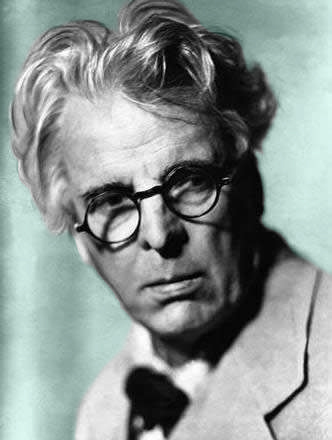
Below, W.B. Yeats writes to his mistress, actress and poet Margot Ruddock, about his skepticism of the “Auden, Eliot” school of poetry and the lessons of Arabian Nights, among other things. He writes:“‘There is nothing shameful in speaking of those things that lie below our waists.’ My life is for the moment made up of such discoveries as I re-read Balzac and The Arabian Nights.”
February 25, 1935
My dear Margot,
I have not written for some day because I have been correcting proof sheets—the first work I have been permitted. When I am on my feet again—if a crisis at the abbey theatre permits—I may go to England to pay a couple of country visits and to see you. I am trying to understand for the sake of my Cambridge Book of Modern Verse the Auden, Eliot school. I do not mean to give it a great deal of space, but must define my objections to it, and I cannot know this till I see clearly what quality it has [that has] made it delight young Cambridge and young Oxford. When you and I have argued it out my mind may clear. By the by what my wife said of Edna [St] Vincent Millay was ‘all hot lobster and mountain tops’, which is perhaps exactly what the youngest generation would say of my work if they did not think that I had lately excluded ‘the hot lobsters’ from the menu. The Shadowy Waters is perhaps a very ‘hot lobster’. Your friend never meant you to take him literally when he said that he would never have forgiven you had you altered one word, and that ‘authenticity’ was the one thing that mattered. He is a scholar and knows that the famous stanza in The Ancient Mariner about the ‘ribbed sea-sand’ was by Wordsworth. All writers have given or accepted just such help. What matters is not what your friend seems to mean by ‘authenticity’ but quality—one more good poem. Kipling and I, though we have never met, wrote when very young men for a review edited by the poet W.E. Henley. He rewrote us both—I never complained and never heard that Kipling did. I admit that some years later when he rewrote Henry James, ‘The screams of Henry James’, as a friend of mine said, ‘filled the universe.’
Her is an episode from The Arabian Nights which amuses me. It might serve for a motto for a very advanced book upon the education of children. Scheherazade, the queen of storytellers, says to her husband that she [is] about to tell certain anecdotes and that she must warn him that ‘though these anecdote are very moral they might seem licentious’ to certain minds. ‘Do not let that stop you,’ says the King, but adds that perhaps they had better send away her little sister who is playing among the cushions; but Scheherazade says ‘no’, because ‘There is nothing shameful in speaking of those things that lie below our waists.’ My life is for the moment made up of such discoveries as I re-read Balzac and The Arabian Nights. When I lay down my book I watch the great tits, the blue tits and the tom-tits eating bread on the windowsill. The best Arabian nights, and even certain parts of Balzac have as little psychology as those birds, and that is why we never forget them. Perhaps I want to see your beauty again for no better reason than that which makes me like looking at the blue tits.
Yours affectionately,
W.B. Yeats
The doctor tells me that it will be early April before I am completely recovered, but I think he exaggerates.
+


